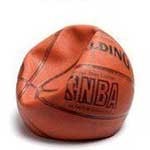“Never say never, because limits, like fears, are often just an illusion.” Michael Jordan
 As an athlete, injury can be one of the biggest challenges you will face in your athletic career.
As an athlete, injury can be one of the biggest challenges you will face in your athletic career.
The mental damage is often more devastating than the physical injury. You will experience a roller coaster of emotions from the moment you are injured, to the moment you return to training and competition.
These are inevitable, but there are mental skills strategies you can follow to thrive and fully recover.
Psychological Part of Recovery
Research by sports psychologist Dr. Leslie Podlog on sport psychology for basketball has found that cognitive appraisals, emotional reactions, and behavioral responses to injury influence the quality and nature of athletes’ rehabilitation.
It’s enormous pressure on any athlete as they recover from a debilitating injury to meet a specific return deadline.
Fear of letting teammates and coaches down feeds into negative cognitive and emotional appraisals.
The plan and goal should be to focus on what you want to happen, not what you are afraid of happening.
Goal setting is an extremely beneficial technique for helping you with your recovery goals. Setting small goals that will lead the ultimate goal will keep you on track and decrease frustration and anxiety.
Mental Recovery Strategies
It is very common after athletes suffer an injury to have reservations as to whether they can return and perform at their pre-injury level.
How smoothly the rehab process goes is crucial to you both mentally and physically.
Consider these tips to counter the obstacles that are experienced by many athletes:
1. Understand that healing is a mental and physical process.
2. Carefully select your support team.
3. Set realistic goals. Consider using SMART format.
4. Focus on the short-term functional objectives; these will help with the long-term goals.
5. Practice mindfulness and meditation to center and ground yourself.
6. Hydrate and eat nutrient-dense foods and supplement wisely.
7. Exercise is medicine. Think of brain endorphin release like an opiate.
8. Recover adequately after each rehab session with sleep and relaxation time.
9. Push yourself wisely as tolerable from a pain perspective.
10. Don’t be fixated on timeline-based objectives but functional landmarks.
11. Communicate your feelings with your team through the entire process.
Psychological effects from an injury will differ from athlete to athlete.
Adopting a positive mindset is essential to aid in the return to play.
A supporting family and medical team around the athlete are paramount to help continue and emphasize progression along the rehab paradigm.
*Download the free mental game assessment and get started on Improving your Mental Game in Basketball.
